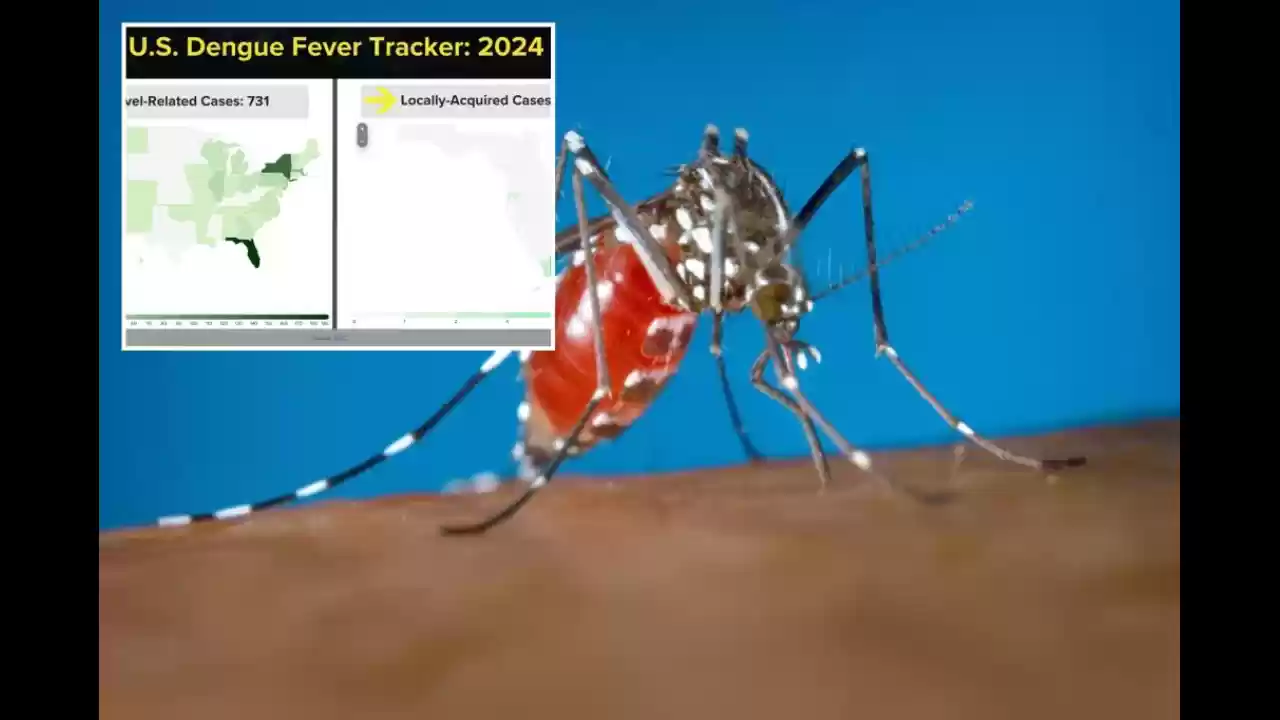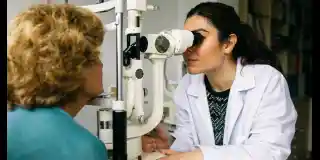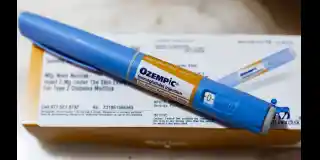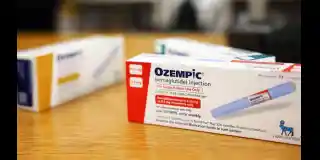Mosquitoes in Florida Keys May Carry Diseases, Health Officials Warn
The Florida Department of Health is warning that mosquitoes in the Keys may carry diseases following the diagnosis of dengue fever in two residents of the upper islands. These locally-acquired cases mark the seventh and eighth reported in the Lower 48 this year, with over 700 cases identified as travel-related. The infections come days after the Centers for Disease Control and Prevention warned health providers of a spike in cases across the Americas. Nearly 10 million people around the globe have reportedly been infected with the virus, which has already surpassed last year's entire count.
In response to the new cases in the Sunshine State, the Florida Keys Mosquito Control District has intensified door-to-door inspections, expanded spraying operations and deployed additional mosquito traps. Health experts say dengue fever is not contagious and is transmitted by the Aedes aegypti mosquito. The mosquito species is known to feed at any time of the day and not solely at dawn and dusk, which increases the risk to humans. 'Wherever you have a significant number of mosquitoes and warm hot environments is where you see dengue transmission,' Dr. Stacey Rizza, a Mayo Clinic infectious diseases specialist, previously told the Mayo Clinic News Network.
Similar to other mosquito-borne illnesses, the virus has no known cure, and symptoms are treated with medication. Symptoms include aches, nausea, vomiting, difficulty breathing and fatigue. According to medical experts, symptoms usually begin four to ten days after infection and only about one out of four people will get sick. The CDC says a blood test is the only way to confirm an infection, as symptoms often resemble other illnesses. The dengue virus has four serotypes: dengue virus 1, dengue virus 2, dengue virus 3 and dengue virus 4.
The infection of one does not provide immunity against the others so that people can be infected multiple times. 'Infection with one DENV generally induces life-long protection against infection from that specific DENV but only protects against other DENVs for several months to years,' the CDC stated. Mosquitoes typically thrive in the Sunshine State due to the warm, humid air, but for South Florida, issues surrounding the pests can be especially problematic. Torrential rainfall in early June that dropped upwards of 25? of precipitation in less than 48 hours caused standing water for days, leading to enhanced breeding grounds. Mosquitoes lay their eggs in or near motionless bodies of water, and the larvae develop within just a few days.
'Most species present here take only between seven to 10 days to go from egg to biting adult,' Dr. John-Paul Mutebi, division director of the Miami-Dade County Mosquito Control, said after the heavy rainfall. Mosquitoes are regularly tested in the state for diseases such as St. Louis Encephalitis, West Nile, Eastern Equine Encephalitis, malaria, dengue and yellow fever. These diseases can vary widely in their impact, ranging from mild to potentially life-threatening conditions.
Preventive measures are crucial in combating these insects and include using effective repellents, wearing appropriate clothing and installing screens to keep insects from entering indoor spaces. Health officials have issued an alert in the Florida Keys after two people were confirmed to have dengue fever. The local alert comes days after the CDC issued a health advisory warning of an increased risk of dengue infections in the country. The two confirmed dengue cases in the Keys were locally acquired, which means the people didn't get sick while traveling. Miami-Dade County has also reported locally acquired dengue cases this year.
It takes two cases for an alert to be issued. In Broward, Mosquito control is using drones to get the pests in hard-to-reach places. They're spreading larvicide granules, killing mosquitos before they hatch. 'We are trying to be proactive and trying to reduce the mass as much as possible the adult mosquito population by preventing the larva to turn into adult mosquito,' said Adriana Toro with Broward Mosquito Control. This is especially important as 2 cases of Dengue Fever have been reported in Key West.
Locally there are 104 in Miami-Dade this year, those are travel-related with 6 contracted locally. In Broward, there are 30 - all travel-related. 'We work closely with CDC. And when they have reports of Dengue cases we work together with them we spray those areas in more, more intensely,' Toro said. The type of mosquito that can carry dengue is the kind found around people's homes.
'Our appeal to our resident is that they take the time, walk around the backyard on the front yard and try to eliminate any accumulation of water,' said Chalmers Vasquez with Miami-Dade Mosquito Control. 'If I stick my hand in here, pull it out. It's got water all over it. That's where the mosquitoes breed,' said Tyler Cheeseman with TJC Landscapes & More. We had a landscaper walk us through a backyard to find those hidden places that become breeding grounds for mosquitoes, like potted plants and bromeliads.
The solution: Drain any standing water and treat your plants that hold water. 'We go by the slogan, the motto of 'Fight the Bite, Drain and Cover,'' Vasquez said. Experts say severe dengue can occur, resulting in shock, internal bleeding, and death. If you or a family member develop the above-mentioned symptoms, visit your healthcare provider or local clinic. This is what health officials recommend in order to prevent the spread.

https://www.cbsnews.com/miami/news/dengue-fever-alert-issued-in-florida-keys-after-confirmed-cases/
https://www.upi.com/Health_News/2024/06/25/cdc-health-advisory-dengue-fever/6631719366612/
https://emergency.cdc.gov/han/2024/han00511.asp
https://www.washingtonpost.com/health/2024/06/30/dengue-puerto-rico-mosquito-climate-change/
 NewsBOT
NewsBOT












